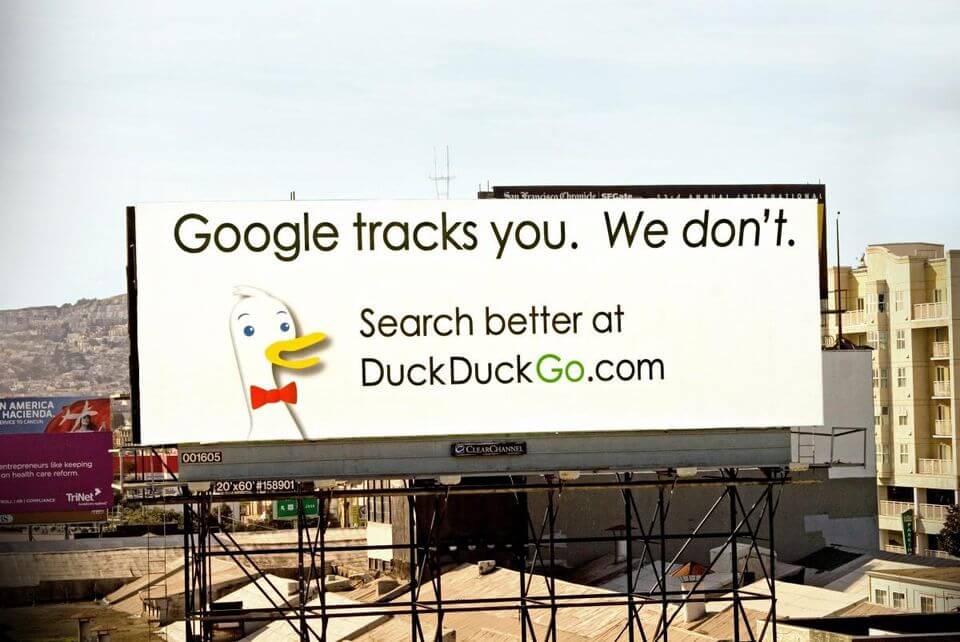In 2016, Gabriel Weinberg, the CEO of the DuckDuckGo search engine was asked by Forbes what his company’s biggest selling point was. He said, ‘we don’t track you’. The reporter followed-up with “… what are you protecting me from?” Weinberg’s answer began with two simple words: several things.
In May 2018, Cambridge Analytica shut down. An avalanche of media reports and mass outrage over how it harvested the data of up to 87 million Facebook users without their consent has taken the firm down. While Facebook, the trusted diary and yearbook of people around the world, is as much to blame, it has emerged unscathed – perhaps with a band-aid covering Twitter’s #DeleteFacebook rebellion.
But as the media reports were coming in hot and fast, Cambridge Analytica released a statement that claimed that it “has been vilified for activities that are not only legal, but also widely accepted as a standard component of online advertising in both the political and commercial arenas.”
There may be some truth in this statement as data harvesting has become a multi-million dollar industry. With Facebook and Google controlling most of the internet – search, email, video, web browsers, advertising, social networks and more, their online dominance is complete.
But led by privacy campaigners, there has been a significant ignition in internet privacy concerns. In such a scenario, it would be more apt for any reporter to ask, not what are you protecting me from, but how are you protecting me?

Picture Courtesy: DuckDuckGo
DuckDuckGo, the search engine with the ludicrous name, has some answers.
Not A Quack
CEO, Gabriel Weinberg worked on various successful and unsuccessful startup ideas – an educational software company, Learnection, a social networking company, NamesDatabase, a Meetup.com competitor – before the search engine. He started working on DuckDuckGo in 2007 as a side project to improve his own Google results, remove spam, and add instant answers form sites like Wikipedia or IMDB.
In 2008, he put out a question for the tech community on Hacker seeking feedback on what people thought of the search engine. The results were mixed: Some people hated it, found the UI visually invasive; some loved it, many asked him to change the name, but most complimented his “balls” for competing with the mighty Google.
By 2010, Weinberg says, “the iterative work was done” and “something clicked” which made people start using it. By then, the search engine had 33,209 daily queries.
2011 was a landmark year. He raised $3 million from Union Square Ventures and also pulled a PR stunt.
The Philadelphia-based, solo search engine creator put up a billboard in San Francisco, Google’s backyard, saying, “Google tracks you. We don’t.”

PC: Forbes
Naturally, it made for a great story and publications like Wired and USA Today covered it. The traffic kept rising and by the end of 2011, DuckDuckGo had over 250,000 daily searches. In 2012, they saw a huge uptick when Google changed their privacy policy to allow tracking across all their properties.
But a singular incident helped the company catapult into success. In June 2013, Edward Snowden blew the whistle on NSA spying and overnight, millions of Americans were grief-stricken about privacy. DuckDuckGo’s daily searches hit a high of 1.5 million. In September and November 2014, Safari and Firefox included it as a search engine option. Since then, partnerships have been an integral part of DuckDuckGo’s success. It is also a built-in search option within Samsung’s Internet browsers, along with Vivaldi, Tor, and within Brave private tabs, among others.
In April 2018, DuckDuckGo recorded 25 million daily searches as compared to Google’s 3.5 billion. While people have complained that DuckDuckGo’s search results are sometimes out-of-context and not localised enough, most admire its growth, remembering Google’s unremarkable beginning.
Private Browsing
Google has built a over $600 billion dollar empire with your information. It has been accused of favouring its own pages or a certain political ideology in its search results. Ideally, browsing should be an anonymous and private activity, but Google has trackers: it uses ads that follow you, and your data remains with the company indefinitely. It may not be legal for anyone to store your data but the courts and government can legally seek it, and they do. Most of us know nothing about this aggregation and sharing because we agree to their terms and conditions, reading which would take us 76 days, reading eight hours a day.
Unfortunately, the industry precedent has been to violate our privacy while leaving all the hard work of changing browser settings, blocking cookies, using ad-block software, virtual private networks, and others, on us. It’s not just Facebook or Google, at least 79 percent of websites globally, according to a 2017 study by Ghostery, have one or more trackers that collect data on their users’ online behavior.
But it doesn’t have to be this way.

Picture Courtesy: DuckDuckGo
DuckDuckGo claims not to store any search history. This means, that even if the government or a multinational company asked them to hand over data about users, they couldn’t. They haven’t stored it. Additionally, DuckDuckGo doesn’t log IP addresses or user agents; it uses default encryption modeled on HTTPS everywhere and doesn’t use cookies by default. It also uses a Tor exit enclave which prevents websites from knowing that you visited them at all.
So how does DuckDuckGo make money? Weinberg explains that it is a myth that you need to track people to make money in web search. Most of the money is still made without tracking people by showing you ads based on your keyword search, i.e. type in car and get a car ad. These ads are lucrative because people have buying intent.
Weinberg says the company also makes money from affiliate links to sites like Amazon and eBay. The company doesn’t disclose numbers but Forbes reported that its revenue is more than $1 million. DuckDuckGo is different in other aspects too. The Philadelphia-based startup doesn’t propagate the Silicon-valley corporate culture. Half of its team works remotely from all over the world.
DuckDuckGo has been operational for about a decade now and it has taken major steps to raise the standard of privacy online. Its blogs, newsletters, and social media feed indulge in a lot of privacy education, explaining, for example, that it is not enough for a search engine/website to collect data anonymously, it has to stop collecting.
However, the biggest testament to DuckDuckGo’s commitment to privacy is its philanthropy. Since 2011, the startup has donated $800,000 to non-profits working to spread internet privacy, and outdid itself in March 2018, with a campaign to donate $5 million.
Subscribe to our newsletter



